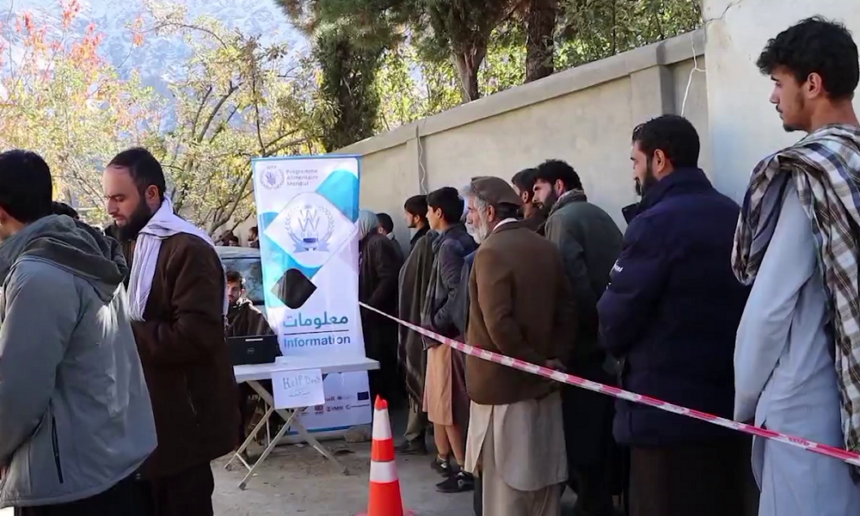As Afghanistan’s harsh winter sets in, millions of families across the country are being forced to make impossible choices between keeping their children warm or providing enough food, the World Food Programme (WFP) warned this week.
The organization reports that millions of families, already struggling with food insecurity, are now having to make this difficult decision.
“Millions of families are enduring the cold of winter without sufficient food, and many are facing the heart-wrenching dilemma of choosing between feeding their children and keeping them warm,” WFP stated.
International aid agencies had warned that this winter would be particularly difficult for the people of Afghanistan, especially given the shortfall in funding for essential aid.
The WFP recently reported that in Afghanistan’s urban areas one in three families was unable to meet their basic living expenses.
In Panjshir province, some residents who have received assistance from WFP expressed concern that the aid provided was insufficient to meet their needs.
“We are grateful to UNICEF, the Norwegian agency, and all other donors, but the aid is not enough,” said one Panjshir resident.
Another added: “Our homeland is remote, and people here are in desperate need. We hope that more support will be provided.”
Meanwhile, the Ministry of Economy of the Islamic Emirate emphasized its commitment to addressing poverty through long-term development projects.
The ministry called on international organizations to support these efforts by focusing on sustainable solutions.
“In the first stage, we thank all the relief organizations that have supported the people of Afghanistan. In the second stage, our plan is to tackle poverty through employment-generating initiatives, infrastructure development, and other projects that will lead to a lasting reduction in poverty,” said Abdul Latif Nazari, Deputy Minister of Economy.
The United Nations Office for the Coordination of Humanitarian Affairs (OCHA) noted that, of the 23 million people in need across Afghanistan, only 15 million have been reached with aid in 2024.













